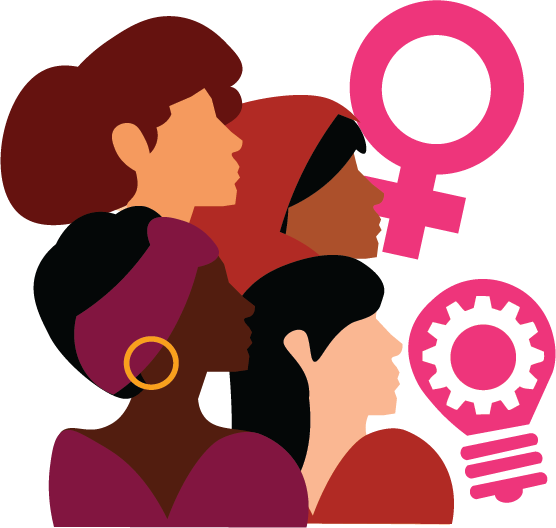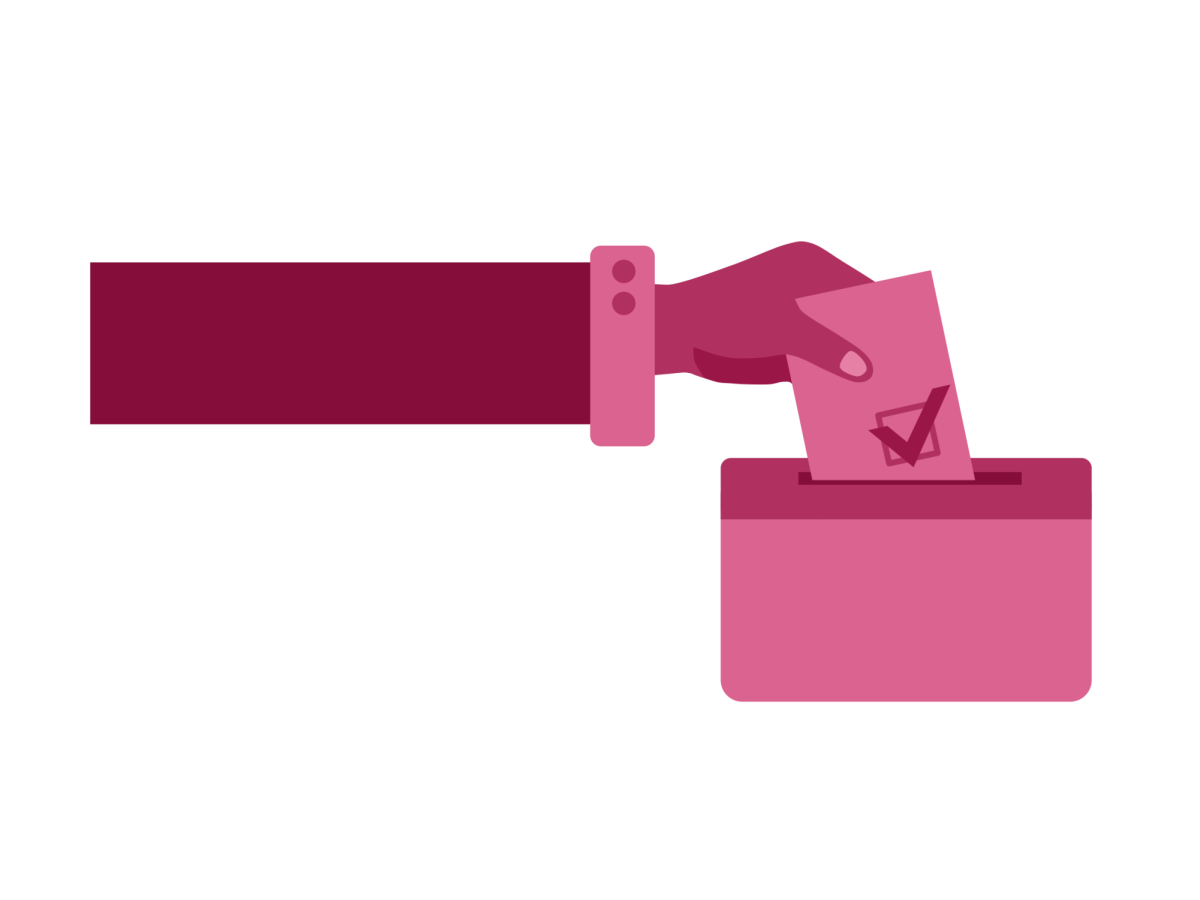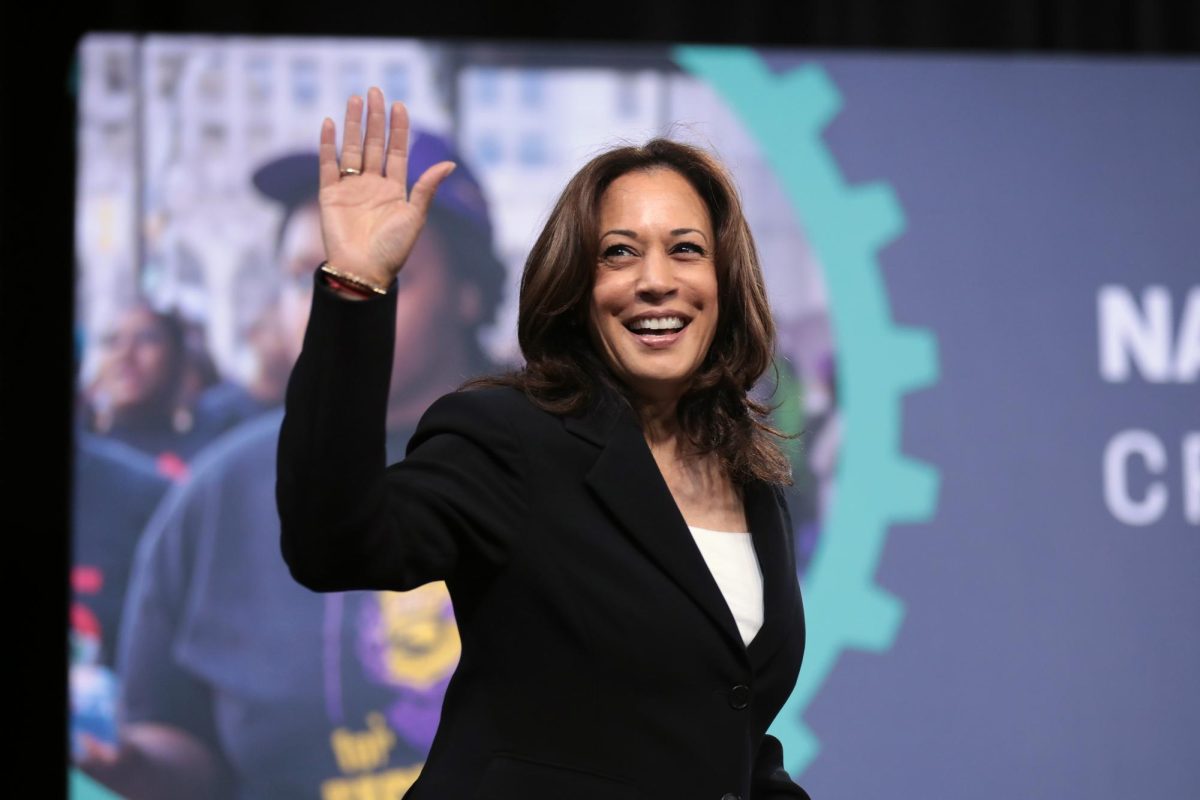
Communications High School (CHS), as its name suggests, tends to academically focus on liberal arts—while employing many women with backgrounds in STEM (science, technology, engineering, and mathematics). These accomplished women share their stories to inspire students toward progress in gender equity.
AP Calculus teacher Justine Lane studied electrical engineering at Stevens Institute of Technology, where she found herself as the only woman in a lecture hall of 150 men. She commented on the challenges that she faced as a woman in a male dominated major.
“There were absolutely times where if you had gotten help from a professor or had gone back and asked for points, others would say ‘Oh, well you only got that because you were a girl,’ or ‘They graded you easier because you were a girl,’” Lane said.
Lane found fulfillment in her experience in a STEM field and shared that although her gender occasionally held her back, it also provided her with opportunities. Lane’s freshman class in college was the first incoming class of any school in the world to require a computer. She designed the cellular network for New Jersey after graduating, securing her spot as the first female cellular engineer in the world.
Similarly, Chemistry and Forensics teacher Erin Wheeler was one of the two women in her major at The College of New Jersey, where she studied Physics Education.
While maintaining her position as a CHS teacher, Wheeler ventured into politics and ran for the New Jersey State Assembly in 2019. She found her time in the political arena to be significantly more eye-opening than her experiences in college. Alongside the challenges of having to overstate her qualifications and not being taken as seriously as her male counterparts, her opponent in the election resorted to using gender-based arguments against her.
“My running mate and I were both women, so we were a female ticket, which was unusual,” Wheeler said. “A man was trying to run against us, and he literally was using the argument of ‘Well, do you want these two women to represent you?’”
According to the Pew Research Center, as of 2023, women comprise 29.9% of state senate seats and 33.7% of state house or assembly seats in the United States. Beyond politics, women occupy an inequitable percentage of leadership positions across the workforce.
In New Mexico, 46.1% of top executive positions are held by females, which is the highest share of any state in the country, as reported by U.S. News & World Report. Globally, the percentage of women in management positions remains disproportionately low as well.
Furthering this point, Programming teacher Laura Gesin ran a department for an international logistics company before teaching at CHS. While the company held offices around the world, spanning locations such as Hong Kong and Israel, there were five women in the entire company and Gesin was the only woman in management.
“It was very male dominated,” Gesin said. “You learned to let things go [like objectification in the workplace], but for your generation, I think it’s better that you don’t.”
As teachers, Lane, Wheeler and Gesin have platforms to share their stories with students—but what about the numerous women achieving feats in STEM who remain unheard? What about the millions of girls across the globe who lack exposure to these narratives altogether? Addressing this systemic issue requires greater efforts to inspire women around the world.
Wheeler proposed implementing a leadership course at CHS aimed at empowering girls to overcome specific hurdles in obtaining and sustaining positions of power. Gesin suggested identifying kids at the middle school level who demonstrate potential and offering them opportunities in computer science programs early with the goal of promoting not only gender equity, but racial and cultural equity as well.
There are countless groups and strong women around the world who are achieving noteworthy milestones, and schools can use these platforms and other resources in the community to raise awareness. For example, schools can promote organizations such as the Jersey Shore Women in Tech, and invite women from these organizations to speak during events like Career Day. This would help showcase the various opportunities in STEM fields and inspire young women by demonstrating the feasibility of pursuing these careers.
At CHS, teachers are sharing their knowledge and experiences to make an impact. As students and aspiring leaders, we can utilize our passions to contribute to making the world a more gender equitable place.
“As a woman in STEM who has also been involved in politics, I try to share my story with as many people as I possibly can to let them know that it’s not that hard,” Wheeler said. “Just because it’s male dominated doesn’t mean it always has to be.”









